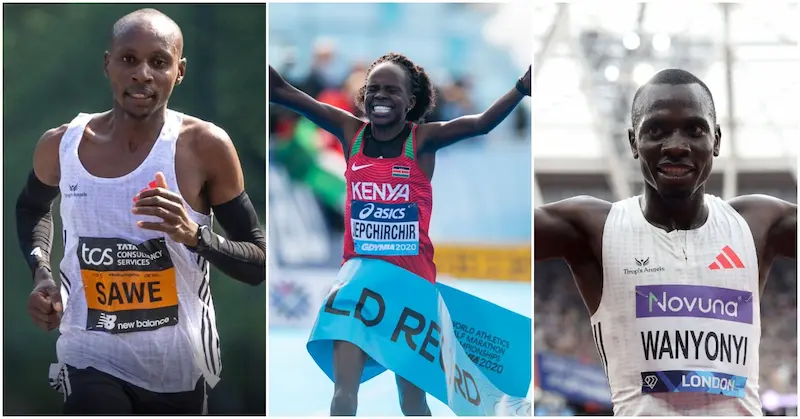In a week that captured the breadth of the sport, from lecture halls in Kericho County to the bright lights of Monaco, Athletics Achievements and Honors defined the conversation around track and road racing. Kenya’s Beatrice Chebet was feted with an honorary doctorate even as the World Athletics Awards finalists were confirmed, sparking both celebration and heated debate among fans.
Chebet’s honorary degree signals a champion’s wider impact
Beatrice Chebet, the double Olympic and world champion across 5,000m and 10,000m, received a Doctor of Humane Letters Honoris Causa from the University of Kabianga during the institution’s 13th graduation ceremony in Kericho County. The recognition, conferred by Vice Chancellor Prof Erick Koech, underscored her stature as a role model whose story elevates resilience, excellence and professionalism on and off the track.
The university cited her as a mentor to many and highlighted her current standing as a world record holder in the 5,000m, the 10,000m and the 5km road race. Chebet described the award as a humbling milestone, saying it strengthens her resolve to keep mentoring and inspiring the next generation, a sentiment that resonated with a crowd that gave her a standing ovation at the ceremony.
Chebet’s family and close circle were present for the moment, including her husband and coach Peter Bii, her mother Lilian Kirui, her grandmother Pauline Langat and her mother in law Grace Rugut. The image of a global champion returning to the South Rift, where her running roots were nurtured, captured the deeply human side of an athlete whose breakthrough dates back to her 2018 World Under 20 5,000m title.
From records to reverence
The honorary degree arrives in the slipstream of a fearsome two year surge. Chebet broke the 10,000m world record with 28:54.14 during Kenyan trials ahead of the 2024 Olympic Games, becoming the first woman under 29 minutes. On the road she set the women only 5km world record of 14:13 in Barcelona at the end of 2023, then lowered the mixed 5km world record to 13:54 on December 31, 2024, becoming the first woman to dip under 14 minutes on any surface.
This year she made more history on the track, clocking 13:58.06 in Eugene to become the first woman to break 14 minutes for 5,000m, then sweeping the 5,000m and 10,000m at the World Athletics Championships in Tokyo. She capped that with Olympic titles over the same distances in Paris, and remained unbeaten in both events through the season, a sequence that has entrenched her reputation as a generational long distance talent.
“The conferment of the honorary doctorate gives me further inspiration in my career, it is a higher pedestal from which I can continue mentoring others in the society to achieve their goals,” Chebet said.
Finalists confirmed as awards debate intensifies
Even as Chebet’s academic honor drew praise, the World Athletics Awards conversation shifted to the final shortlists that were unveiled ahead of the November 30 gala in Monaco. The women’s track award will be decided between Femke Bol and Sydney McLaughlin Levrone, two athletes who authored dominant seasons in the 400m hurdles and 400m respectively, setting up a blockbuster finish to the year.
Kenyan fans, however, voiced disappointment that Faith Kipyegon and Chebet did not make the final cut for the women’s track award. Kipyegon broke her own 1500m world record with 3:48.68 and claimed a fourth world title, adding a 5,000m silver behind Chebet’s gold, a résumé that many felt belonged in the decisive two. The conversation quickly turned to the voting system and how much weight it places on different ballots.
World Athletics explained that finalists were determined by a weighted process that gave 50 percent of the vote to the World Athletics Council, 25 percent to the World Athletics Family and 25 percent to public votes. Fans pointed out that Kipyegon and Chebet reportedly led the public vote, which reignited the perennial debate about how to balance expert panels with popular opinion in a sport that thrives on both numbers and narratives.
Kenyan presence remains prominent in Monaco
Despite the women’s track omission, Kenya still features strongly among the finalists. Emmanuel Wanyonyi, fresh from a commanding 800m world title in Tokyo, is shortlisted for men’s track athlete of the year, a nod to the teenager’s assured rise on the global stage. Marathon luminary Peres Jepchirchir and city to city standout Sabastian Sawe are in the out of stadium categories, keeping the country’s road running tradition in the awards spotlight.
A second round of fan voting ran from November 4 to 9 and will contribute to the overall selections alongside the Council and Family votes. The winners in each category, and the overall athletes of the year, will be revealed at the World Athletics Awards ceremony scheduled for Sunday November 30 in Monaco, an evening that regularly doubles as a barometer for the arc of a season.
Who made the finals
The confirmed finalists span the track, field and out of stadium disciplines, reflecting a year of standout performances across the sport. Below are the names set to contest the awards in Monaco, a list that underscores both range and depth among 2025’s elite.
- Women’s track athlete of the year Femke Bol, Sydney McLaughlin Levrone
- Men’s track athlete of the year Noah Lyles, Emmanuel Wanyonyi
- Women’s field athlete of the year Tara Davis Woodhall, Nicola Olyslagers
- Men’s field athlete of the year Mondo Duplantis, Mattia Furlani
- Women’s out of stadium athlete of the year Peres Jepchirchir, Maria Perez
- Men’s out of stadium athlete of the year Sabastian Sawe, Alphonce Simbu.
| CASINO | BONUS | INFO | RATING | |
|---|---|---|---|---|
|
bonus
90 free spins weekly!
See 4 Bonuses
|
info
OGL/2024/137/0132 secure platform with top casino games & bonuses. |
|||
|
bonus
Welcome package: 190000 KES + 150 FS!
See 12 Bonuses
|
info
Experience the thrill of our casino! Spin, win, and enjoy top-notch games anytime ALSI-202411073-FI2 |
|||
|
bonus
Exciting deposit bonuses and free spins await!
See 10 Bonuses
|
info
Curacao OGL/2024/507/0541 Wide Range of casino games |
|||
|
bonus
Register for a free bet at Maybets!
See 6 Bonuses
|
info
Mobile-based site, 100+ casino games, BK 0000680 PG 0000453 |
Balancing fairness, form and fandom
The uproar around the women’s track shortlist is as much about process as it is about performance. The weighted vote gives preeminence to institutional voices through the Council and Family, while the public has a significant but not decisive say. The result, in this instance, left out two record breakers who dominated major stages, which many argued seemed at odds with the competitive story of the year.
Yet the finalists who did make it have equally compelling claims. McLaughlin Levrone switched from the 400m hurdles to the flat and won world gold in 47.78, the second fastest performance in history, a transition that speaks to raw speed and tactical maturity. Bol did not lose a race over the barriers, marrying consistency with championship poise that is often the benchmark for end of season honors in track and field.
Chebet’s season in context
Chebet’s year can be distilled into a trio of defining achievements. First, she produced a sub 14 minute 5,000m in Eugene with 13:58.06, a barrier many thought would resist for much longer. Second, she completed the 5,000m and 10,000m double at the World Championships in Tokyo, an achievement that signaled total control from heats to finals. Third, she maintained an unbeaten streak in her main events, a hallmark of peak form that supports her candidacy in any award conversation.
Her path to the present was paved by the 2024 campaign, where she claimed Olympic gold in both long distance events and closed the year by resetting the 5km road record to 13:54 in Barcelona. That progression fortified her confidence that the track records would follow, a belief borne out in her Eugene performance that redefined the limits of women’s distance running.
Faith Kipyegon’s brilliance and the sting of omission
Kipyegon’s season added another layer to her legend. She lowered her 1500m world record to 3:48.68 and captured a fourth world title in the event, a feat of sustained excellence over a middle distance that demands both pace and positioning. She also secured 5,000m silver behind Chebet, a signal of her range at championship level.
That portfolio made her omission from the final two a flashpoint for fans, particularly in a year where sub four minute miling equivalent standards moved and yet she remained out front. The outcry captures a broader tension within awards ecosystems, where the valuation of records, titles and unbeaten runs must be weighed against consistency across a field of worthy peers.
What the honors mean back home
In Kericho County, Chebet’s honorary doctorate resonated beyond the athletics community. University leaders framed the award as a celebration of values that transcend sport, and Chebet herself linked the moment to her responsibility to the South Rift’s rising talents. The degree becomes a local emblem of global achievement, validating the pathways from school tracks to world stages.
For young athletes in Saramek and beyond, seeing a police officer turned global champion return with academic honors is more than symbolism. It is a living blueprint for how discipline, mentorship and national representation can intersect, fueling ambitions that stretch from county cross country circuits to the World Athletics Championships and the Olympics.
Eyes on Monaco and the next chapter
As the calendar counts down to November 30, the awards will offer a snapshot of how the sport chooses to tell its story at season’s end. The field and road categories are rich with narratives, from Mondo Duplantis’ pole vault mastery to Peres Jepchirchir’s marathon excellence, while the sprints and middle distances pit rising stars alongside established champions in a compact field of two per category.
Whatever the envelopes reveal in Monaco, the week has already affirmed the breadth of recognition in athletics. Chebet’s honorary doctorate places an exclamation mark on a season of record breaking feats, while the awards debate reminds the sport to keep refining how it measures greatness. Between podiums and parchments, the athletes continue to define the standard, and the world watches for what comes next.










